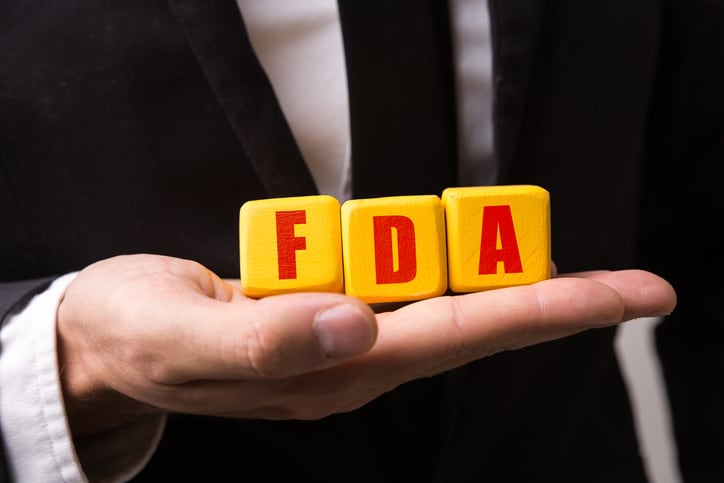The rulemaking initiative would be dependent on a review of the data to ensure there are no safety concerns for NAC, a derivative of the amino acid L-cysteine and a precursor of the cellular antioxidant glutathione. NAC naturally occurs in foods like onions and garlic.
Despite being used as in supplements since the early 1990s, and therefore an “old dietary ingredient” according to the Dietary Supplement Health and Education Act of 1994 (DSHEA), the FDA declared in July 2020 that NAC was not a legal dietary ingredient because of its prior approval as a drug. NAC was first approved as an inhaled mucolytic drug in 1963.
The NAC issue has been a concern for the industry as it saw the drug preclusion principle (which states an ingredient cannot be used in supplements if it is first approved as a drug) applied to an old dietary ingredient with decades of safe use. Many in the industry had assumed that such issues were settled for old dietary ingredients once DSHEA came into effect on Oct. 15, 1994.
In response to the FDA statements and market concerns, Citizen’s Petitions were filed in the summer of 2021 by the Natural Products Association (NPA) and the Council for Responsible Nutrition (CRN). The CRN petition asked the Agency to reverse its position that NAC-containing products cannot be dietary supplements. The NPA petition asked FDA to either determine that NAC is not excluded from the definition of a dietary supplement or, in the alternative, initiate rulemaking to make NAC a lawful dietary supplement under the Food, Drug, and Cosmetic Act.
At the end of March of this year, the Agency denied the CRN petition in its entirety and denied the first part of the NPA petition. In response to NPA’s request for rulemaking, FDA said it was considering this.
The guidance, published today, is the final version of a draft guidance issued in April. FDA again states it will exercise enforcement discretion for NAC, basically turning a blind eye to the sale of NAC-containing dietary supplement products so long as products are not making non-compliant disease claims.
The guidance states that the enforcement discretion will continue “until either of the following occurs: we complete notice-and-comment rulemaking to allow the use of NAC in or as a dietary supplement (should we move forward with such proceedings) or we deny the NPA citizen petition’s request for rulemaking.”
FDA’s Welch: Three to five years…
Speaking at the recent Dietary Supplement Regulatory Summit in Washington, DC, Cara Welch, PhD, FDA's director of the Office of Dietary Supplement Programs, said she wants to hesitate on providing a definite timeline for NAC rulemaking.
“If we were to proceed, we would start with the proposed rule, those comments of course are really important and then move ahead to final rulemaking as appropriate. So that’s a ways down the road, I believe FDA’s estimate for traditional notice comment and rulemaking is 3-5 years,” said Dr Welch.
“We want to continue to look at the information we have on NAC. Rulemaking does require a certain amount of effort to ensure we're meeting all of what we think we need to issue a post rule and this would be precedent-setting. This is the first time that we are looking at this rudimentarily and so I think in a sense it may require additional work to make sure we understand how we want to use this authority–even outside of just NAC.”
NPA: A big win but bittersweet
Commenting on the new guidance, Dr Daniel Fabricant, NPA President and CEO, called it “a big win but it is bittersweet for sure.
“Although it was NPA’s leadership that secured this victory for American consumers, the FDA could have and should have reached this decision years ago.
“The dietary supplement industry is under attack from all levels of government, from shortsighted organizations pushing for unnecessary and costly new federal red tape to state lawmakers who are determined to block access to supplements and raise costs for consumers and retailers, but NPA’s members had the foresight and commitment to turn the tide.”
“Citizens petitions and lawsuits are extreme measures and should be the rare exception, not the rule. The industry experienced significant economic harm as a direct result of the Agency’s years’ long and inexplicable delays on NAC, but thankfully our actions held FDA accountable and forced their hand on issuing final guidance.
“We hope this is a teachable moment for the agency that expedites resolution on any remaining issues on NAC with FDA and that basic regulatory obligations in the future are handled in the timely and professional manner befitting of the ‘world’s gold standard’,” said Dr Fabricant.
CRN: We continue to disagree with FDA's interpretation of the drug preclusion clause
Megan Olsen, CRN's senior vice president and general counsel, offered following remarks in response to the announcement: "CRN appreciates FDA providing this final enforcement discretion, but CRN continues to disagree with FDA’s interpretation of the drug preclusion clause that led to the need for this policy in the first place. Drug preclusion should not apply to NAC.
"FDA has suggested that it cannot start the rulemaking process under the exclusion to the drug preclusion clause because it is still reviewing the safety of NAC. FDA has had access to safety information provided by stakeholders at the request of FDA for more than six months, and this ingredient has been sold as a dietary supplement for decades without any safety issues being raised. FDA has had ample time to raise any safety concerns; continuing to stall on the rulemaking at this point just harms businesses and consumers.
"FDA spokespersons have also indicated that rulemaking could take 3 to 5 years – all the more reason why FDA should begin the rulemaking process immediately or provide its reasoning for needing additional safety or other data. We strongly encourage FDA to explore ways in which rulemaking can be expedited, such as using interim rulemaking authority and providing adequate agency resources to the notice and comment rulemaking process so a final rule can be implemented as quickly as the law allows, without the need for additional extensions or delays by the agency during the rulemaking process."
To read the full FDA guidance, please click HERE.





